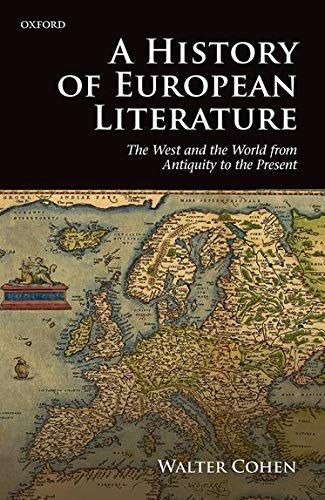
A History of European Literature The West and the World from Antiquity to the Present
Walter Cohen argues that the history of European literature and of each of its standard periods can be illuminated by comparative consideration of the different literary languages within Europe and of the relationship of European literature to world literature. The global history of literature from the ancient to the present can be divided into five main, overlapping stages. European literature emerges from world literature before the birth of Europe--during Antiquity, whose Classical languages are the heirs to the complex heritage of the Old World. That legacy is later transmitted by Latin to the various vernaculars. The distinctiveness of this process lies in the gradual displacement of Latin by a system of intravernacular leadership dominated by the Romance languages. An additional unique feature is the global expansion of Western Europe's languages and characteristic literary forms, especially the novel, beginning in the Renaissance. This expansion ultimately issues in the reintegration of European literature into world literature, in the creation of today's global literary system. It is in these interrelated trajectories that the specificity of European literature is to be found. This ongoing relationship of European literature to other parts of the world emerges most clearly at the level not of theme or mimesis but of form. One conclusion is that literary history possesses a certain systematicity. Another is that language and literature are not only the products of major historical change but also its agents. Such claims, finally, depend on rejecting the opposition between the general and the specific, between synthetic and local knowledge.